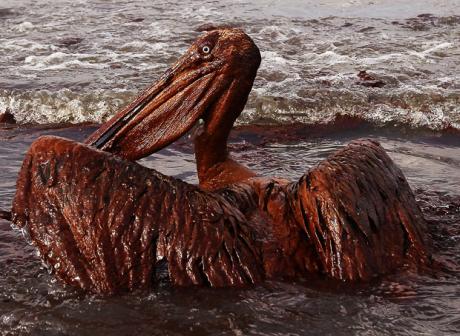
The suffering caused by the BP oil spill in the gulf has been on all of our minds. When the Tricycle staff first gathered to discuss the environmental disaster back in April we couldn’t have imagined that three months later oil would still be pouring out of the earth, covering the ocean with a pervasive sheen. Though it is easy to feel helpless in the face of such massive devastation, it’s important for all of us to remember that there are actions we can take to support those affected by the spill. In the upcoming “Good Work” section of the August issue,Tricycle will feature a special section devoted to relief organizations in the gulf and in “On Gardening” Wendy Johnson reflects on the tragedy of the spill and the source of our attraction to the deep abyss of the ocean.
Today on Huffington Post, Sarah Chasis, an environmental lawyer and director of the Natural Resources Defense Council’s Ocean Initiative, blogged about her experience visiting the gulf coast last week and bearing witness to the suffering of humans and animals (full disclosure: Sarah Chasis is my mom):
I have just returned from Louisiana where I saw firsthand the devastating impacts of the Gulf oil disaster. I saw oil in the marshes, on the beaches and in the water. I saw an oiled pelican unable to fly being captured and taken to a rescue center; I saw dead fish floating in the water; I saw marsh grass and black mangroves coated with oil; I saw a mother and baby dolphin swimming innocently through waters laced with oily sheen.
I spoke with people who were out of work—whose families have been commercial fishing for generations, charter boat captains whose businesses had dried up.
Stay tuned to the August issue of Tricycle for a list of organizations providing relief to those devastated by the oil spill.
To check out the Summer 2010 issue’s “Good Work” section, click here.
Thank you for subscribing to Tricycle! As a nonprofit, we depend on readers like you to keep Buddhist teachings and practices widely available.